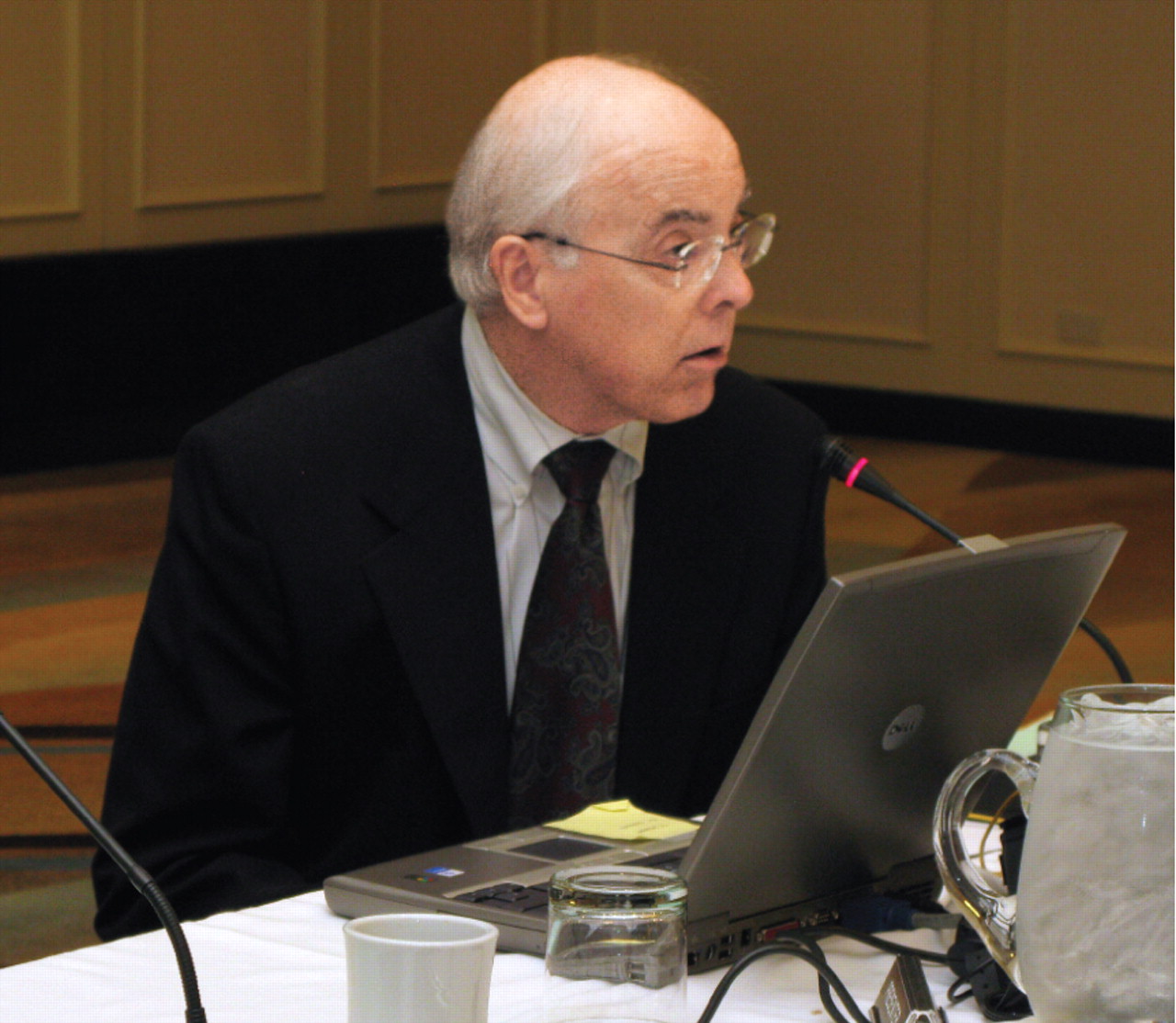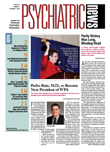Confronting serious fiscal challenges facing the Association, the APA Board of Trustees voted at its October meeting in Chicago to have the president and Assembly speaker appoint an ad hoc work group to come up with recommendations on reducing the cost of APA governance activities by $1 million in the 2009 operating budget.
Governance includes the Board of Trustees, Assembly, and committees, councils, and other components. It also includes some district branch support, though not all of it.
The work group is to have its recommendations ready to present to the Assembly at its November 7-9 meeting in Washington, D.C.
A number of decisions were made about ways to close what would have been a large shortfall in APA's 2009 budget, with most of the discussions held in executive session. Among solutions that were proposed were that no new projects or activities would be funded next year and that a hiring freeze would continue, with exceptions made only on a case-by-case basis. There currently are about 45 unfilled positions, about twice the usual number. While the hiring freeze is in effect through the end of 2008, the 2009 budget contemplates a likely reduction in the number of budgeted staff positions.
The anticipated gap between revenue and expenses in an early draft of the budget prompted the cuts. APA is faced with a period in which revenue growth is not anticipated in the immediate future. Advertising revenues are down. Membership dues revenue is more or less flat. Annual meeting revenue varies depending on the site, but there has been a decline in funding for industry-supported symposia, exhibits, and private grants. Expenses continue to grow primarily due to inflation.
In addition, reported APA Medical Director James H. Scully Jr., while APA membership has shown slight increases over the last few years, the number of members required to pay full dues has been on a downward track as the ranks of residents and life fellows, who both pay lower dues rates than do general members, have accounted for a growing portion of the membership. In addition, despite inflationary pressures that have caused cost increases in most budget line items, APA membership dues have not been raised for 13 years.
The Board reported that it did agree on 2009 operating and capital budgets, subject to fine-tuning over the next two months. A final vote on the budget will be taken at the Board's December meeting.
District Branch Presidents Speak
The APA Board met in Chicago in conjunction with APA's Institute on Psychiatric Services. As it has at most of its meetings over the last several years, the Board heard presentations from two district branch (DB) presidents about the challenges facing their organizations and the successes they have been able to achieve.
It turned out that the two leaders of Midwest DBs shared many of the same concerns.
Carlyle Chan, M.D., president of the Wisconsin Psychiatric Association, told Board members that he wanted to thank APA for a grant that allowed the DB to organize its first advocacy day at the state capitol. This was particularly timely, he noted, since Wisconsin psychiatrists are expecting state lawmakers to be debating a psychologist-prescribing bill soon. He cited the enthusiastic participation of psychiatry residents in advocacy day as a hopeful sign for the future and said that the DB plans to step up many of its advocacy activities.
He indicated as well that the DB is committed to increasing its membership, which means planning an effective outreach to the approximately 150 Wisconsin psychiatrists who are not members. The DB is also facing the challenge of replacing disappearing pharmaceutical financial support for activities such as its annual meeting.
APA Grants Put to Good Use
Iowa Psychiatric Society President Robert Smith, M.D., also thanked APA for a grant that allowed the DB to hire a lobbyist for the first time and thus increase its advocacy in the state legislature. He also expressed appreciation for APA support that helped the DB respond to mental health issues following the floods that devastated large parts of the state earlier this year.
He too cited the challenge of recruiting new members and noted that Iowa needs a major infusion of psychiatrists, in light of its ranking 47th among the states in the number of psychiatrists per capita. The shortage is especially acute in Iowa's many rural areas, he said. A partial solution may come from a proposal to create a public/community psychiatry track in the University of Iowa's residency program, Smith noted, and from the“ proactive recruitment” of international medical graduates.
Money Is the Bottom Line
The Trustees also heard from Mark Heyrman, J.D., a board member of Mental Health America of Illinois. Heyrman, a professor of law at the University of Chicago Law School specializing in mental health law, stressed that the key element to fixing much of what's wrong with mental health system is“ money.... That's the bottom line.” And to attract a lot more of it, mental health advocates, including APA may have to seek out“ unexpected allies.” He cited law-enforcement personnel as one group fitting this category, as they too want solutions to problems such as prisons being filled with people needing specialized mental health care.
To be a strong voice as a new government administration tackles health care reform, “we have to talk with a unified voice,” he emphasized, and put aside individual differences for the greater good.
In addition three Board work groups tasked by APA President Nada Stotland, M.D., to study key issues facing APA and psychiatrists in general reported on their activities. One of these work groups is studying the future of the U.S. mental health care system, including proposed reform initiatives. The work group will eventually recommend positions for which APA should advocate when the next Congress and president turn their attention to health care reform. The two other work groups are studying ways in which APA can adapt to potential reductions in income and support from the pharmaceutical industry and how it can best adapt to changes in the psychiatric environment, particularly to efforts by nonphysicians to expand their scope of practice.
Actions taken by the Board at its October meeting are posted in the Members Corner of APA's Web site at<www.psych.org>.▪


